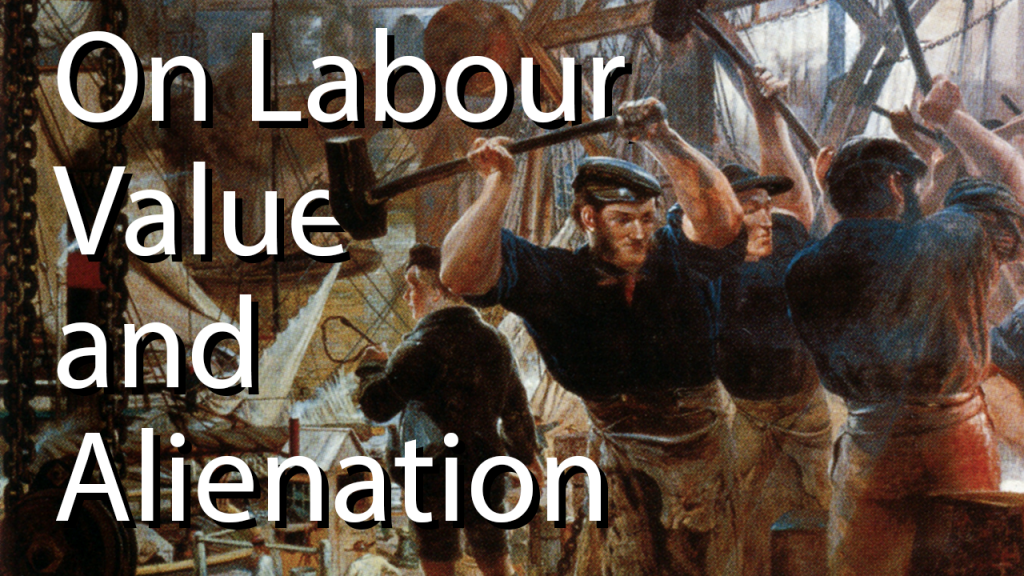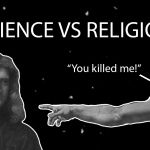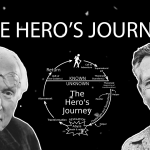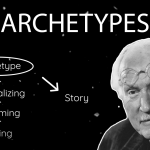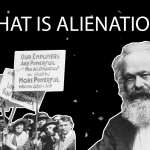Intro
Is this why we work? The rat race… the grind…
Rising in the morning only to want to go to sleep again…
Your whole life you took the path of least resistance and ended up with a job you do not like, working for a boss you do not like, only so you get some money in return that at the very least gives you some commodities that help forget this sad truth.
Or as Nietzsche put it:
“Even today, in this transitional period in which so many forms of coercion have lost their power, the need to make a living still forces nearly all European men [and woman] to adopt a particular role - their so-called profession. A few retain the freedom, an apparent freedom, to choose this role themselves; for most of them it is chosen. The result is strange enough. Almost all Europeans, at an advanced age, confuse themselves with their role; they become the victims of their 'good performance'; they themselves have forgotten how much they were determined by accidents, moods, and arbitrariness at the time that their 'profession' was decided - and how many other roles they may have been able to play; for now it is too late!”
Now if we know that 85% of people
do not like their job or even think that there job is useless, that they
themselves are useless,
But, then why do we work? And why
do we hate it?
The Argument
To know why we work, we first need to know what work actually is.
When you ask people, the answer you most likely get is something like: “work is labour that produces money”.
And indeed, work can produce money, but this is merely a RESULT of work, rather than a description of what it actually is.
And, even then, work (or labour) does not always produce money.
To take the extreme example of slave labour, no one would make the argument that the work that the slaves are doing is not work, simply becouse they do not get paid.
So, but then what is work?
I think that the best answer to this question can be found in physics.
Here Work is defined as: W=Fs “the force applied to an object, times the distance that the object is displaced”.
In simpler terms: This will give the amount of energy that it takes to move a particular object.
But why would we use energy to move things?
Why not stay in bed all day watching Netflix? Just sit still in a chair doing nothing?
From a biological perspective this would even be somewhat more energy efficient.
Here another concept in physics can provide an answer, and that is the concept of entropy.
Entropy is defined as “a measurable physical property that is most commonly associated with a state of disorder, randomness, or uncertainty”.
Or, the way that I like to conceptualize it: “a system wants to be in the highest state of chaos”.
Entropy is often seen as a difficult to understand concept, but think of it this way:
Imagine, you have a brick. You put energy into making this brick and thus organising all molecules, and energy in the molecules, to form a brick.
You have just created order out of chaos.
But the system does not want to be in order, but rather in chaos. The energy does not want to be confined in one object.
It wants to be dispersed and spread as this creates more stable systems with regards to the distribution of the energy.
When we look around us, we can see entropy everywhere:
For example: Coffee colling down, Ice melting, food rotting, and so on.
What if there was no human to put energy into making things? What if entropy had won?
We can get a glimpse of what this would look like, if we look at The Last of Us for example.
Not that it will be likely that there will be zombies that try to kill us all the time, but if something would prevent us from working, I think that this would be the closest representation of what the world would look like.
It is nature that dominates, chaos.
Thus the reason that we put energy into “things”, is to combat the destructive forces of nature and help us survive.
This is a concept that is central in almost all stories and myths ever written.
The creative and destructive mother nature, opposed by the protecting and tyrannical father culture and vice versa.
A topic that I will go further into in another video.
Now, the coolest thing is, that we have even been wired biologically, to be rewarded when creating order and value by our acts of labour.
Or as Jordan Peterson puts it: “Your brain can tell you when you are optimally situated between order and chaos. And the way it tells you this, is by producing the sense of engagement and meaning”.
Whenever we reach a goal, or when we are aware that we are moving toward a goal, our brain will release dopamine’s.
The hormones that give us the sensation of engagement, meaning and, not least, “happiness”.
Now you can trick this system by using drugs like alcohol or cocaine.
The only thing Cocaine does, is increase the amount of dopamine in your body to stimulate the reward systems in the brain.
However, this shortcut to happiness will only be short lived as it will not aid us in any way to our survival, nor reaching our goals.
In fact, it most often has the exact opposite effect…
Now, from a biological perspective it makes sense that we only feel happy when we know we are surviving.
It would be weird if your brain would reward you for only engaging in hedonistic pleasures like watching Netflix all day, or drinking yourself senseless every night.
Now you might feel that it would not matter if only you would do nothing but engage in this hedonistic pleasure, but what if everybody would do so?
There would be no farmers to produce food, no water, no houses, not even electricity to power the television, not even the television itself.
We can only exist if we all work, if we all contribute.
Or as Jean Jacques Rousseau explains in the Social Contract:
“The necessities of the public are supplied out of the superfluities of individuals. It follows that the civil State can subsist only so long as men’s labour brings them a return greater than their needs”.
Now, up to this point it might sound fairly logical, we do not only work to survive, but it can also give us the sensation of happiness, and so on.
But then why do we still hate work?
Ironically enough, often the reason that we hate our job, is that we do not know why we do it, that we do not know why we work.
We feel it is something we must do, not by our own will, but forced by someone or something else.
And if we do work for ourselves, we work for the money it will give us only to satiate us with commodities.
After all, we like buying “things”. (summery shots with commodities)
We have lost our connection to the work itself.
Carl Jung wrote the following: “If we lose the symbolic dimension of our work, and understand it only in economic terms, we experience suffering”.
Or what we today might call a “burnout” or a “Depression” even.
However, this concept of having lost our “symbolic dimension” is not new and is maybe best described by Marx, as the concept of alienation.
There will be a full video on the concept of alienation, so for now a short description will do:
In short:
In a system that is increasing in size, we can no longer trade commodities for other commodities.
For example a bag of potatoes for a linen coat.
Therefore, we no longer trade labour directly, but we use an equivalent form of exchange, which would be Money.
However, using the money form can create misunderstanding of what the money represents or “signifies” in Lacanean terms.
Thus in general: “Market exchange disguises social relations” – David Harvey –
For example, take an engineer working in a car factory.
The car is produced by the engineer, yet his name is not displayed anywhere.
We do not buy the labour of the worker, we simply buy a Mercedes or Ford.
In this way “The alienation of the worker in his product means not only that his labor becomes an object, an external existence, but that it exists outside him, independently, as something alien to him, and that it becomes a power on its own confronting him”. Marx – Economic & Philosophic Manuscripts of 1844.
Now, Marx believed that this Alienation was the result of capitalism, and that it could only be solved by revolution.
However, apart from the fact that this revolution was one of the worst experiments in history, there is another way.
Conclusion
We do not need to uphold the distance that we feel toward our work.
By understanding the dynamics of our society, economy and our own psyche, we can once again connect ourselves to our symbolic dimensions.
Once we know our role in society, and we know we are needed for the survival of all humans, we can feel this meaning, engagement and even happiness.
We are creators. We work to create.
And then, when we finally defeated Alienation, we might even begin to love our work.

